- Home
- Blair Bancroft
Orange Blossoms & Mayhem (Fantascapes)
Orange Blossoms & Mayhem (Fantascapes) Read online
1
Chapter One
I should have been struck by an ominous chill the day the Russian bear walked into my life. But the Florida spring sun was at its most brilliant, the temperature eighty-six degrees, and my head was filled with visions of a helicopter swooping down toward the SWAT training tower, where a woman in white waved frantically for rescue.
Had we gone too far? Was Weddings Extraordinaire about to lose its first bride?
And then there was the little matter of the date I had with the helicopter pilot.
So I missed the significance of the moment. And have spent more than a few anguished hours wondering, What if . . .?
The day it all began, our wedding event was an after-work-on-Friday affair, so the bride and groom could get to Tampa in time to make a Saturday cruise to Cozumel. I’d dressed for the wedding when I got up that morning, pairing a rough-weave linen topper in bomber jacket mode with a flared chiffon skirt that swayed up a storm when I walked, alligator half-boots and matching purse—all in a vibrant shade of royal blue. I would have preferred the chic of knee-high boots, but this is Florida, so forgetaboutit. A blue leather driving cap with saucy brim and poofy crown kept my shoulder-length curls—which I like to think of as bronze, not red—from rioting completely out of control.
A bit much for the SWAT training grounds, which is buried deep in Florida’s outback? Probably, but Aunt Candy says we’re in a glamour business. How can we charge clients twenty, thirty, fifty thousand if we’re dressed for picking up Twinkies and milk at the local supermarket? So when I have to make a public appearance on behalf of Fantascapes or its subsidiary, Weddings Extraordinaire, I go the extra mile. And sometimes I put on the Paris runway look just for the hell of it. At five-seven and one twenty-five, I admit to an extra pound here and there, but emaciation doesn’t work for a Fantascapes’ troubleshooter. Occasionally, things in the high-end special events market can get a bit out of hand.
Today, however, I didn’t anticipate trouble. This wedding was strictly local, the bride a paralegal who works down the hall from the Fantascapes offices. The groom, a county deputy, member of the local SWAT team, and a high school classmate of my brother Jeff. My advice for their wedding, strictly pro bono. No way could Marybeth or Jake afford our fee. Miraculously, Aunt Candy had only grumbled once, knowing quite well her partner, my mom Karen, was giving me a wink and the high sign behind her back.
I pulled my silver Lexus into the parking lot behind our offices. (I’d wanted a white Jag XK convertible, but I sometimes have to chauffeur our clients. Farewell, low-slung power trip. We were in the business of fulfilling our client’s fantasies, not our own.)
The Fantascapes office is in a long pink stucco structure that was once the winter quarters of a wealthy military school. Now it’s a mall, the classrooms gone to commercial—offices, boutiques, a small café—with apartments carved from two stories of dorm rooms above. One of those suites is mine, but I’d been out this morning, talking a local civic association into ferrying a bridal party and wedding guests to the association’s private beach. It had taken a very large donation to their environmental fund, but, hey, whatever works . . .
Whistles may not be PC, but the Waste Management crew suddenly stopped watching the dumpsters being emptied into their big green truck. I felt the intensity of the men’s gazes all the way to the mall’s back door. Some women may call it sexual harassment, but I say, let ’em look. When I see a hot guy, I want to be free to do the same.
The glorious cool of air conditioning enveloped me as I went through the mall’s back door, strode along the short corridor between the ice cream parlor and Sherry’s Suncoast Boutique, turned left down the long hallway. And there, right by the building’s front entrance, was our sign—the one Jessie, our receptionist, set out on an easel each morning.
Fantascapes
* Live Your Dreams *
Weddings Extraordinaire & Holidays by Halliday
I didn’t always notice the sign, of course, but today—maybe because the bride was a friend and four years younger than I—nostalgia was getting to me. The way to Fantascapes elegant suite of rooms in this gracious old building had not been easy. Not for any of us. Our sign, bold and elegant, gave no hint of the pain, the heartaches, the blood, sweat, and tears. Of the disaster that exiled the Halliday family to Florida. Or the strange resurrection that followed.
Enough! Happy thoughts today. Blue was only a color.
I took another look at the face Fantascapes presented to the world and felt a warm surge of satisfaction. The entrance to our reception area, with its shiny mahogany desk, state-of-the-art office equipment, and waiting area with comfortable Florida print sofa and upholstered chairs, was a twelve-foot opening on one side of the mall’s front foyer. At night, tall black wrought iron gates closed the gap, while low lights spotlighted the sign that Jessie carefully moved back just inside the barrier. During business hours the gates were laid back against the foyer walls. As I walked into our elegant office that morning, I felt good. Proud. Maybe even a bit smug.
Little did I know!
“Oh, thank God,” Jessie breathed when she saw me. With her hand over the mouthpiece of her telephone, she rolled her eyes toward a man who had jumped to his feet the minute he saw me. He was huge, a bear of a man. And looking expectant. I raised an eyebrow at Jessie, who is an attractive fiftyish and usually unflappable. Fantascapes, after all, doesn’t do flappable, because flappable doesn’t get the job done. As Dad says, if the price tag is a hundred K, then the event has to go right. Even if it takes some tweaking here and there.
That’s what I do. I tweak.
“Your mom’s out trying to convince Helen she can do the balloon wedding,” Jessie told me, “and Candy’s at a city council meeting, trying to get a fireworks permit for the Ebberly’s anniversary. Mr. Kirichenko”—she nodded toward the bear, who was now regarding me with something a bit more lascivious than hope—“is a walk-in. He has an–um–really challenging request. Do you think you could . . .?” Jessie batted her heavily mascared eyelashes at me and returned to her phone call.
Helen is Helen Lomelo, our on-call JP—usually ever-ready, but this time she had balked at the prospect of conducting a service high off the ground in a hot air balloon, and I doubted that even Karen, my redoubtable mom, could get the town council to allow fireworks in a residential area. Most particularly, not on the waterfront where real estate prices begin at one million and soar up from there. Neither Mom nor Candy was going to be back any time soon.
As I studied the Fantascapes’ client information form Jessie had handed me, I heard her say into the phone, “No, sir. No, sir! I assure you we do not fulfill dreams of that kind.” The phone thunked into its cradle with considerable force.
Jessie is a treasure. No matter how–ah–excessive some people’s dreams are, she manages to filter out ninety-five percent of the oddballs before they get to Aunt Candy or Mom. Or me. Not that I mind handing out a sharp set-down or three. Weirdos are a hazard of our profession. We aim to please our clients, but their requests have to be legal.
Though sometimes . . . well, sometimes we find ourselves dancing a frenzied tarantella on the edge of the abyss.
Another glance at the info sheet. Viktor Kirichenko. His address, the neighboring town of Three Rivers, which boasted a large Slavic community, predominantly Ukrainian. His phone, a cell number. I summoned my warmest professional smile and turned to our potential client, whose rumpled suit and limp tie lingered somewhere between mass discount store and Goodwill.
“Mr. Kirichenko.” We shook hands. I couldn’t help but recall a story told by a real estate agent in the office across
the hall. His client was a Slavic immigrant, a gray-haired, stoop-shouldered older woman wearing a shapeless black babushka dress. She could barely speak English. The agent had grave doubts about her ability to get a mortgage. But when the right house was found, the old lady simply upended a battered doctor-style bag onto the table and paid the one hundred twenty thousand in cash.
“You make weddings, special weddings, yes?” Mr. Kirichenko inquired in a surprisingly thick Russian accent. Most of the younger Russians I knew spoke pure, unaccented American. I led our potential client into my office and almost sighed with relief when he sat down. I’m far from a wimp, but this guy was maybe six-four, two seventy-five—all muscle, with a full brown beard, neatly trimmed to about three inches all around. Not more than forty, I guessed, with surprisingly boyish pale blue eyes peeking out from beneath shaggy brows. His nose looked as if it had been broken at some time, possibly more than once.
Fortunately, at the moment the mountain was disposed to be amiable. I assured him that Weddings Extraordinaire, Mom and Aunt Candy’s branch of Fantascapes, specialized in unusual weddings. I did not mention price. This early in the game that would have been insulting. Who knew?—perhaps the bear was my version of the little old lady with a bag full of money.
“How can we help you, Mr. Kirichenko?”
“I wish Fabergé egg? You know Fabergé egg?” he added anxiously.
“I’ve seen the collection in Moscow,” I told him. In my role as a well-trained representative of Fantascapes, I did not add that a Fabergé egg would be less expensive if acquired through Christie’s or Sotheby’s.
“Ah, karasho.” He beamed. “Then you understand when I say I wish bride to be inside egg. Many eggs.” Kirichenko’s ham-like hands pantomimed peeling away layers of . . . something. “Like matrioshka doll.” Expectantly, he stared at me, willing me to understand.
Matrioshka doll. The roly-poly wooden mama dolls that came apart in layers, sometimes as many as ten or twelve, until only a single tiny figure remained at the center. But matrioshka dolls came apart in the middle, not at the waist. “Mr. Kirichenko, I understand what you’re saying, but even if we could build what you want, the last layer would still be waist high on your bride. How would she climb out?”
“No, no, no!” he cried. “Not in middle. Not like mama doll. Egg must open like door. Each layer, like door.”
Okay, I could visualize that. But the famous Russian eggs, created for the royal family by the genius of the jeweler Fabergé, were incredibly ornate. Building and decorating even a single egg large enough to hide a bride was a tad mind-boggling. More than one, right up there with designing sets for a Broadway musical.
“Just how many layers did you have in mind?” I inquired, a trifle weakly.
Viktor Kirichenko considered the matter, his head tilted to one side, his bushy hair adding to the illusion that I was sitting across the desk from a great brown bear. “Four?” he ventured. “Is enough, I think. I know not easy to make.”
I nodded, making a valiant effort to look omnipotent. Live Your Dreams. Fantascapes could do it. But there was always that sad touch of realism. Time. Money. Cost effectiveness. “When is your wedding, Mr. Kirichenko?”
“First Saturday, May.” His white teeth flashed in an eager smile.
Ruthlessly thrusting aside the romance of a bride emerging from a nest of Fabergé eggs, I pursed my lips and considered the nitty-gritty. Thank God there were always plenty of eager students at the Ringling School of Art and Design, who would leap at a chance to create multiple human-size Fabergé eggs. And yet . . . “That’s tight, Mr. Kirichenko,” I said. “Only seven weeks. I’ll have to consult with my colleagues, get a cost estimate. It’s possible we’ll discover that what you want is prohibitively expensive—”
“No matter!” The bear waved an agitated hand in my direction. “Money no matter. I want. I do. You tell me price. I pay.”
O-kay. Was he Russian mob? Arms dealer? Drug smuggler? He could simply be one of Russia’s new capitalists. Or a man fortunate in his relatives.
“Laine, I’m sorry to interrupt”—Jessie stood in the doorway—“but Paolo Jimenez is on the phone. From Lima. He sounds pretty upset.”
“Is all right. I go now.” Viktor Kirichenko stood, enveloped my hand in his great paw, and gave me a carefully gentle shake. Bless him. I suspected that for all my time in martial arts classes, he could crush me like a bug. I assured him we would get back to him as soon as we’d done our research. Even with an international call waiting, I couldn’t help taking the time to watch him lumber out of my office. The supersize personification of a classic Russian enigma.
For a moment I frowned at my white desk phone—so ordinary, so innocent—yet it was undoubtedly about to bring me grief. Paolo Jimenez, our rep in Lima, usually communicated by e-mail. A telephone call meant trouble.
I picked up the phone, making a real effort to sound cheerful. I had a hot date with a new guy this weekend. A fast trip to Peru was not on my schedule. “¿Cómo le va, amigo?”
I listened, shook my head. Foolishness, sheer foolishness. “Max Arendsen is absolutely right, Paolo. At Nazca the plane’s wings have to be above the windows. Otherwise the pilot has to stand the plane on one wing before Max and Hildy can see the lines. Then for the next set of lines, the pilot has to do a roll and stand on his other wing. Trust me, we guaranteed the Arendsens a good look at the Nazca lines, not the roller coaster ride from hell.” Been there, done that. I knew the hollow feeling of viewing the famous Nazca figures while lying on my side. And my fellow passengers turn green.
“Look, Paolo, if the regular plane’s down for maintenance, hire one in Lima and send it to Nazca. Ask for some kind of Cessna Skyhawk. Turbo, if you can get it. An extra day in Nazca means the Arendsens will have only two days to acclimate in Cuzco before they hit the Inca Trail, but that’s then and this is now. Single engine Cessna. Do it.”
Paolo gulped, sputtered, uttered a feeble protest. “Lima’s a big city, Paolo. There has to be a plane with wings above the windows. Just do it.” Please, please do it. Don’t make me fly down there. Please, double please. I’d met Flint Ramsay, helicopter pilot and SWAT team sergeant, at one of the consults for Marybeth’s wedding. Canceling our date tomorrow night was out of the question.
I held my breath. After a few more mumbles, Paolo agreed to give it a try. Thank you, Lord. Fortunately, Mom came back before I had to leave for the wedding. Less fortunately, she was steamed. Helen Lomelo suffered from acrophobia, a fear of heights. Weddings Extraordinaire was going to have to find someone else to officiate at a ceremony in a hot air balloon high above central Florida.
The helicopter swooped down toward the sixty-foot SWAT training tower, its rotors scattering dirt, leaves, and twigs like a whirlwind left over from our last hurricane, the thundering roar of its engine doing its best to intimidate the wedding guests. I grabbed my poofy driving cap, clamped my other hand against my flaring layers of chiffon, and planted the sturdy heels of my half boots hard into the sandy Florida soil. Sixty feet above us, the bride—her white silk gown billowing in the storm-like wind—hung out the window of a wooden shack at the top of the tower. Clutching a bouquet of blood red roses in one hand, she waved madly with the other.
For the sake of Fantascapes, I could only hope she maintained the illusion of a maiden in distress, but Marybeth looked like she was going to forget her role and break into a broad grin at any moment.
And who could blame her? For the groom, in spite of his stiff powder blue tux, was looking suitably heroic as he dangled on the end of the chopper’s rescue cable, swinging ever closer to the front of the open tower window. Noise and wind forgotten, we all gaped as Jake swiveled his hips, did something tricky with his feet and broad shoulders, and plucked his bride straight off the ledge, the only casualty one white satin slipper that landed with a soft thud in the dirt six stories below. A collective sigh of relief swept the wedding guests as the chopper swung away. Thank you, Lord. My ideas u
sually worked, but . . . let’s face it, losing clients isn’t good for business.
Maybe now, while the guests are slogging across the uneven grass toward the wedding tent—a few teetering wildly on high heels—is a good time to explain how Fantascapes got started. You see, there’s a reason Weddings comes before Holidays on that sign at the office. It all began nearly twenty years ago back in Connecticut. My Aunt Candy, Mom’s sister—in spite of emerging from three failed marriages with nothing to show for it but a toddler— loved weddings, if not the reality that followed. That, plus the shadow of poverty—Aunt Candy’s third ex was as likely to send alimony as he was to win a jackpot in Vegas—made a strong incentive. In the blink of an eye Candy Spangler moved from giving friends advice, gratis, to being a startlingly successful wedding consultant. And after Dad came home from his last so-called business trip in a wheelchair and we had to give up our sprawling white 1830 Federal on the Connecticut shoreline for the great unknown of Florida’s Gulf Coast, Aunt Candy declared, “People get married in Florida, right?” and moved right along with us, sweeping my mother into the business before she knew what hit her.
I’d been a freshman in high school at the time, still feeling my way through the cultural shock of falling into Bubbaland, not to mention our brand new handicap-accessible pink stucco fortress out back of beyond. I mean everybody else in Florida lives as close to water as they can—beach, bay, Intracoastal Waterway, or lake. All we had was a jungle river right out of Apocalypse Now, a sluggish tea-colored ribbon of water, chock-full of alligators and water moccasins. And even that was a far hike from the house. The Calusa River doesn’t just flood in tropical storms. By the end of every rainy season, homeowners along the river have to park a mile away and row home. Not a great place for a guy in a wheelchair, but I guess Dad still liked to live dangerously.
Not too surprisingly, those first months in Florida Dad and I grumped around, feeling sorry for ourselves, empathizing without words about all we’d left behind, both of us utterly useless. My half-brother Doug—the son of Dad’s first wife who died when Doug was four—had finished college and disappeared into the same anonymous government alphabet soup that had disgorged my father in a wheelchair. Logan was a junior in college, and Jeff a senior in the local high school.

 Sorcerer's Bride (Blue Moon Rising Book 2)
Sorcerer's Bride (Blue Moon Rising Book 2) Orange Blossoms & Mayhem (Fantascapes)
Orange Blossoms & Mayhem (Fantascapes) Royal Rebellion
Royal Rebellion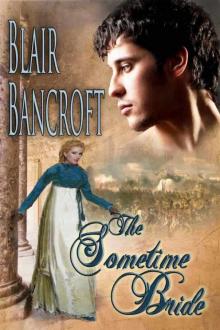 The Sometime Bride
The Sometime Bride A Season for Love
A Season for Love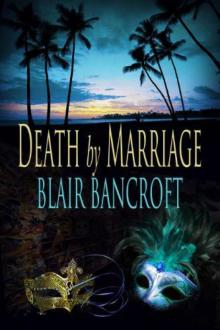 Death by Marriage
Death by Marriage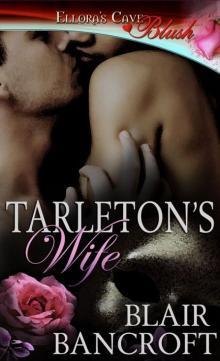 Tarleton's Wife
Tarleton's Wife Limbo Man
Limbo Man Airborne - The Hanover Restoration
Airborne - The Hanover Restoration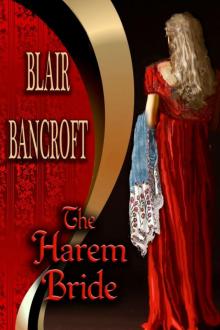 The Harem Bride
The Harem Bride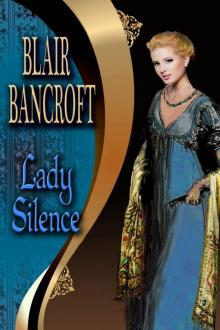 Lady Silence
Lady Silence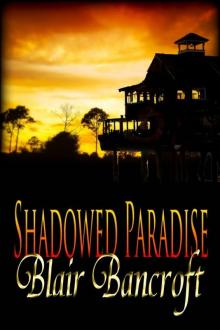 Shadowed Paradise
Shadowed Paradise The Last Surprise
The Last Surprise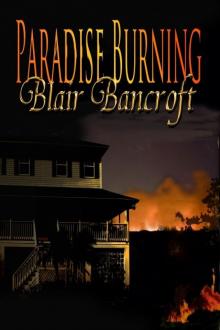 Paradise Burning
Paradise Burning Florida Knight
Florida Knight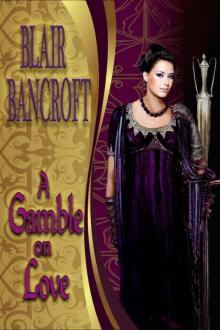 A Gamble on Love
A Gamble on Love The Bastard Prince (Blue Moon Rising Book 3)
The Bastard Prince (Blue Moon Rising Book 3)